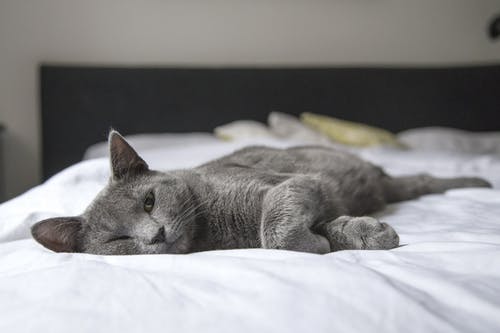The thyroid glands produce too much thyroid hormones, causing hyperthyroidism. It is the most common hormone disorder that cats suffer from. Although it can be treated, however, it can cause your cat to be uncomfortable. Loss of weight, excessive thirst, frequent urination, diarrhea, vomiting, weakness, irritability, hyperactivity, and aggression are all signs of hyperthyroidism.
The diagnosis is determined by the concurrent discovery of appropriate symptoms in the clinical setting, the possible presence of a palpable thyroid nodule, and the results of blood tests to assess thyroid function. The options for treating cats with hyperthyroidism are numerous. The treatment option chosen is based on the veterinarian’s expertise, the degree of the animal’s health condition, the cost, and the availability of radioiodine.
Managing Cat Hyperthyroidism
Finding out that their pet suffers from hyperthyroidism can be pretty distressing for pet owners. One of the first things pet owners look into is researching the different treatment options available for their pet’s condition. This article will provide an overview of the various traditional and new therapy options available to treat cats suffering from hyperthyroidism.
1. Surgery
Treatment for hyperthyroidism may involve the surgical removal of large thyroid glands functioning independently, especially when pet owners are concerned about the adverse effects of long-term oral treatment. Before surgery, cats are thoroughly examined for any preexisting issues like heart or renal disorders.
Removing both thyroid glands is often needed in cats suffering from hyperthyroidism. This is because both glands are affected in more than 80% of cases. Numerous thyroidectomy procedures are being developed to decrease the chance of complications postoperatively like calcium depletion or the recurrence of hyperthyroidism.
Before undergoing surgery, your pet will need to have pet CT scans done in order to guarantee that they will go through the appropriate operation to address the issue.
2. Medical Therapy
Methimazole, carbimazole, and iodine-containing medicines are the most common treatment for hyperthyroidism. Beta-blockers such as propranolol hydrochloride or similar drugs can be utilized in conjunction with these treatments. Methimazole is currently the most commonly used drug to treat hyperthyroidism.
It is taken orally, but it can also be applied topically to treat the symptoms of hyperthyroidism. Anorexia, vomiting, liver diseases, and hematological disorders are potential adverse reactions to this medication.
Consulting facilities that offer cat and dog radiology should be done once your pet has completed treatment. A professional veterinary radiologist can tell you whether your pet’s condition has improved since their last exam.
3. Radioiodine Therapy
The most secure and safest treatment for hyperthyroidism appears to be radioactive Iodine therapy. Subcutaneous, intravenous, and oral delivery of radioiodine are options. While oral delivery is believed to be effective, the risks of exposure to the people who administer the drug and the environmental pollutants are not a good option.
The possibility of utilizing radioactive iodine treatment for cats has increased significantly in recent years. As a pet owner, you might initially find the cost of radioiodine therapy expensive. Still, the long-term treatment for medical conditions or surgeries will cost the same amount.
4. Ethanol Ablation
A novel, non-medically effective method to treat hyperthyroidism in cats was to eliminate thyroid nodules using alcohol. The procedure is performed by putting the animal completely sedated with ultrasound-guided. The thyroid mass is then injected with ethanol, and the amounts of hormones that regulate the thyroid are checked.
The owners reported that their cat’s hyperthyroidism symptoms disappeared after weeks of therapy. Hypothyroidism wasn’t a concern for these cats, and they didn’t require thyroid medications.
5. Heat Ablation
For cats suffering from hyperthyroidism, innovative treatment has been developed. Recent research has revealed that ultrasound-guided heat ablation for hyperthyroidism was evaluated in nine cats. Although the treatment successfully decreased the amount of thyroid hormone in each cat, the positive effects lasted for an average of only four months. Moreover, hyperthyroidism returned to all cats within 18 months of completing treatment.






